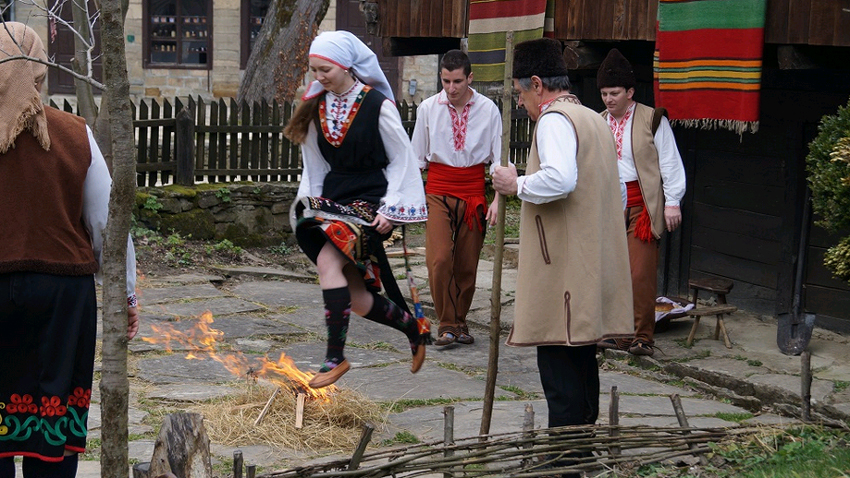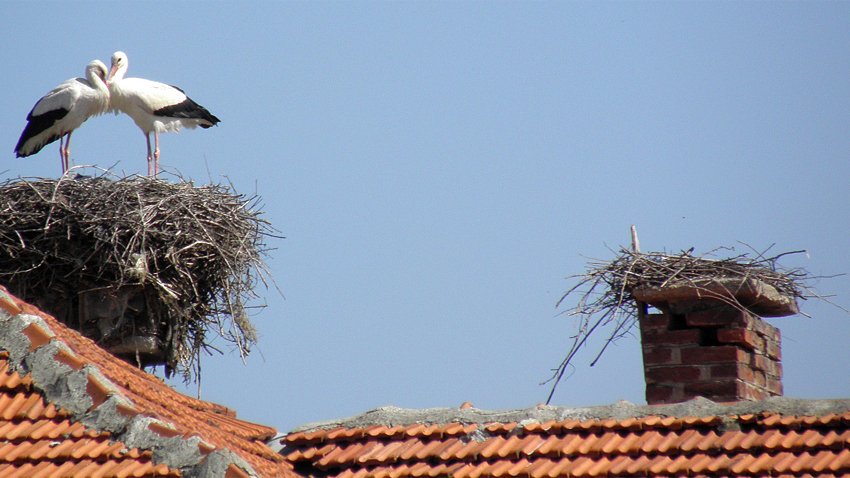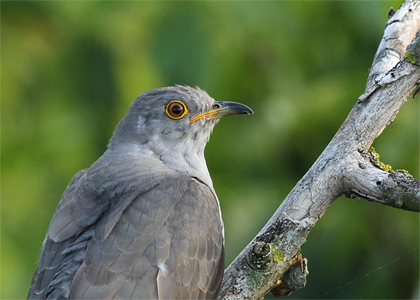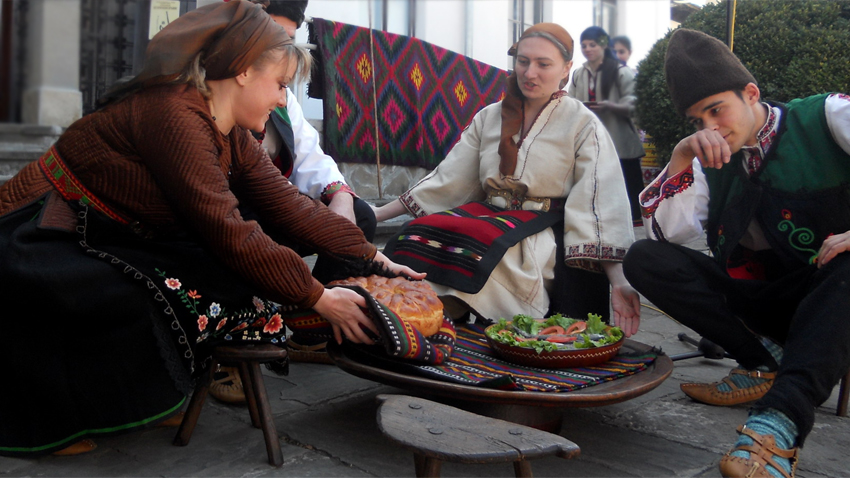Annunciation is a major Christian feast day that falls exactly nine months before the birth of Christ. In Bulgarian tradition, it goes by the name of Blagovets or Blagoveshtenie (derived from the word blag – good, kind, gentle). On this day Archangel Gabriel brought the glad (blag) tidings to Virgin Mary that she would conceive and become the mother of Jesus Christ. Blagovets brings with it the hope of good tidings, a kind word, clement weather, good people we shall meet along our way…
March is the month when we do the spring cleaning in our homes, in farm buildings, but also a time to clean out our minds and our bodies for a new beginning. In anticipation of the spring-time feast days, on the very first day of the month rituals would be performed connected with the rebirth of everything around. According to popular belief, on Blagovets the cuckoo flies in from the sea, as does the swallow to announce that winter is gone and summer is on its way.
As the earth warms up, snakes crawl out of their lairs, having spent the winter in the caves of their king. From “the end of the world” wood-nymphs and other “spirits” come – invisible beings man should not anger, provoke or even accost.

 It is the custom on Blagovets to sweep the yards, orchards, even the flower beds. The sweepings would be set fire to and people would jump over the fire for health, even “smoke” their feet to ward off snake bites. In some parts of the country people would take a burning rag all around the home, the yard, all places on the premises where there are people and livestock. This too was said to keep snakes at bay. There is another custom practiced nationwide that was noisy and enjoyed by one and all – the ritual of women and children walking round the property making as loud a noise as they can; in some parts of the country this is done even in our day. They would carry fire tongs, pokers or other utensils made of metal, rattling them all the while and shouting: “Get away snakes and lizards, Blagovets is coming!” In some parts of the country it is the storks that “are coming”. According to popular belief even the most dangerous of snakes can do no harm to a stork. There are stories in which snakes can even get the better of the powerful eagle but never the stork.
It is the custom on Blagovets to sweep the yards, orchards, even the flower beds. The sweepings would be set fire to and people would jump over the fire for health, even “smoke” their feet to ward off snake bites. In some parts of the country people would take a burning rag all around the home, the yard, all places on the premises where there are people and livestock. This too was said to keep snakes at bay. There is another custom practiced nationwide that was noisy and enjoyed by one and all – the ritual of women and children walking round the property making as loud a noise as they can; in some parts of the country this is done even in our day. They would carry fire tongs, pokers or other utensils made of metal, rattling them all the while and shouting: “Get away snakes and lizards, Blagovets is coming!” In some parts of the country it is the storks that “are coming”. According to popular belief even the most dangerous of snakes can do no harm to a stork. There are stories in which snakes can even get the better of the powerful eagle but never the stork.
 Once, unmarried lasses would make the rounds of the village houses to sing “Blagovets songs”. This is a ritual that was performed right up to the beginning of the 20th century and is now being revived in many parts of the country. And once again, the “protagonist” in these songs is the cuckoo and the news it brings – that the wood-nymphs have come or which lass would marry soon… Blagovets is a day on which fun is poked at treasure hunters – because of the belief that on the previous night a magical blue flame would rise from the spot where there is buried treasure. Village buffoons would set straw on fire, cover it up with a basket so its flames would turn blue. Next morning the spot would be dug up, causing endless banter at the tavern.
Once, unmarried lasses would make the rounds of the village houses to sing “Blagovets songs”. This is a ritual that was performed right up to the beginning of the 20th century and is now being revived in many parts of the country. And once again, the “protagonist” in these songs is the cuckoo and the news it brings – that the wood-nymphs have come or which lass would marry soon… Blagovets is a day on which fun is poked at treasure hunters – because of the belief that on the previous night a magical blue flame would rise from the spot where there is buried treasure. Village buffoons would set straw on fire, cover it up with a basket so its flames would turn blue. Next morning the spot would be dug up, causing endless banter at the tavern.
Most importantly, when the cuckoo starts calling one’s belly and pockets must be full. If you are hungry, sick or penniless when you hear it call, all you have to do is clap your hands until it flies away.

English version: Milena Daynova
Esther Willems from the Netherlands continues to attract people from different cities and nationalities to her club for Bulgarian folk dances, established in The Hague and named "Zora". It was founded in 2017 and then 13 people..
In the middle of August in Kyustendil, Southwestern Bulgaria, the "Panagia - Raising of the Bread" holiday takes place. The holiday is directly related to the church holiday "Assumption of the Blessed Virgin Mary", marked on August..
A three-day embroidery festival takes place in the square of the village of Vardim near Svishtov, the organizers reported. At its core, the festival promotes a particularly colorful part of our lifestyle and traditions -..

+359 2 9336 661
